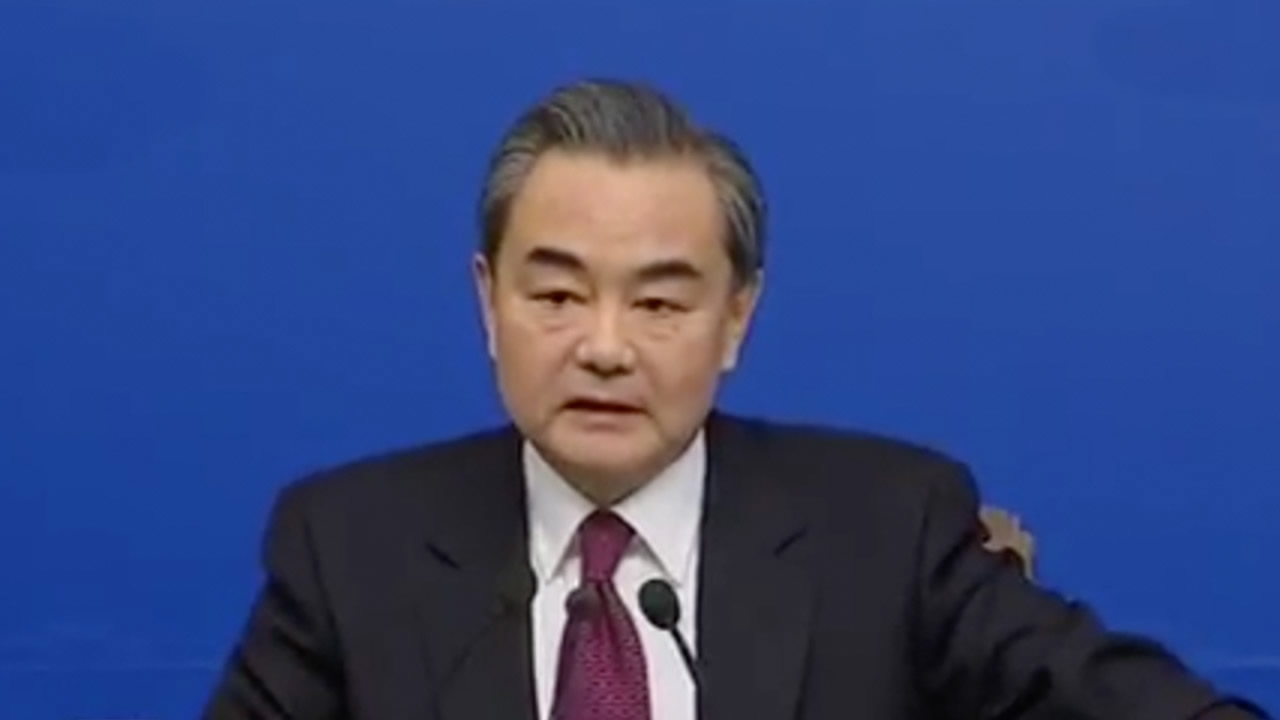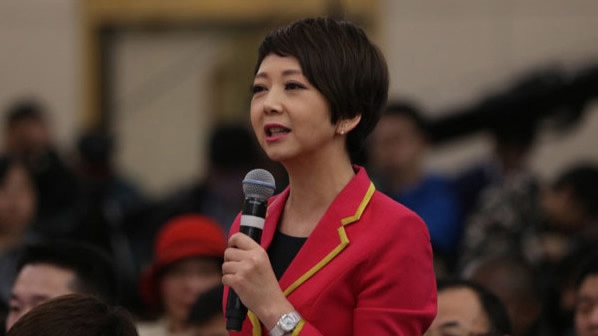
Politics
12:47, 08-Mar-2017
Highlights: FM Wang Yi talks about China's 2017 diplomatic priorities
Updated
10:59, 28-Jun-2018

Chinese Foreign Minister Wang Yi took questions from journalists on Wednesday at a press conference in Beijing on the sidelines of the Two Sessions.
Over two hours, he briefed domestic and foreign media about China’s foreign policy priorities in 2017.
On the South China Sea
The situation in the South China Sea has calmed visibly, Wang Yi said.
China would like to see more maritime cooperation and greater trust between parties as China and ASEAN countries work together to come up with joint rules in the South China Sea, he added.
On China-ROK relations
Wang Yi said that China firmly opposed the deployment of the THAAD anti-missile defense system, saying the installation of the Terminal High Altitude Area Defense in the Republic of Korea was obviously a "wrong choice".
China advised the parties involved not to pursue the action, or it would end up hurting them and others, Wang added.
This year marks the 25th anniversary of diplomatic relations between China and the ROK and China treasures what their two peoples have built over the past decades, Wang also noted.
On the Korea Peninsula situation
Wang Yi noted that China had proposed a "double suspension" - meaning that the DPRK and other powers should both seek to defuse the looming crisis on the Korean Peninsula. The priority on the Korea Peninsula situation was to prevent tension between the DPRK, South Korea and the US, he added
On China-US relations
Wang said the US and China should maintain their relations amid challenges.
He said the relationship was transitioning steadily and developing in a positive direction through joint efforts. The phone call between Chinese President Xi Jinping and US President Donald Trump last month set a direction and paved the way for bilateral relations.
The interests of China and the US are closely intertwined, thus leaving no way for a zero-sum game. “There is no reason that China and the US cannot become excellent partners”, Wang added.
On China-Russia relations
China, the United States and Russia should work with one another and pursue win-win outcomes, China's foreign minister also said.
In the new era, the China-US-Russia relationship should not be a "seesaw" game. The three countries should work with, rather than against, one another and pursue win-win, rather than zero-sum, outcomes, he urged.
On BRICS mechanism
Wang Yi said the five BRICS countries - Brazil, Russia, India, China and South Africa - were representative of emerging economies. The BRICS mechanism will not lose its luster but will shine more brightly as long as they work together, Wang said taking a question from CGTN reporter Tian Wei.

CGTN reporter Tian Wei asks a question to Chinese Foreign Minister Wang Yi about the BRICS mechanism at a press conference. /NPC Photo
CGTN reporter Tian Wei asks a question to Chinese Foreign Minister Wang Yi about the BRICS mechanism at a press conference. /NPC Photo
Wang Yi also congratulated CGTN on its recent launch. This was the first time a CGTN reporter had a chance to raise questions during the foreign minister's press conference since the media organization was launched in January 2017.
On the Belt and Road Forum
The Belt and Road is China’s initiative, but it also belongs to the world. The idea comes from China, but the benefits will flow to the whole world, Wang told the media.
On Brexit vote
Wang Yi said China would continue to support the European integration process, "We believe the challenges currently confronting Europe may turn out to be an opportunity for the European Union to mature."
On Xi’s visit to Switzerland
Chinese President Xi Jinping's trip to Switzerland in January where he visited international organizations sent out a very clear message of China's strong support for multilateralism and its strong commitment to the UN-centered international system, Wang Yi said.
On China-Africa cooperation
China will keep up its efforts to support Africa’s development no matter how the international situation or world economy may evolve, Wang Yi said.
"What distinguishes China-Africa cooperation is that China always keeps its word," Wang said.
On China’s role in international community
China believes in the equality of all countries and does not believe that some countries should lead other countries, Wang said at the press conference. The UN should play its role in coordinating international affairs.
“Rather than talking about ‘leadership’, we should really be talking ‘responsibility,’” Wang said. China pledged to fulfill its obligations on international peace and stability as the world's second largest economy.
On China’s diplomatic policies
Wang Yi used three keywords to outline China's diplomatic policies: vision, initiative and consistency.
He also outlined China’s diplomatic achievements and visions. Amid instability and conflict in many parts of the world, China has adhered to peaceful development, Wang said. With a growing backlash against globalization and rising protectionism, China has championed multilateralism, openness and inclusiveness, he added.
China will work to act as an anchor for international stability, an engine of global growth, a champion of peace and development, and a contributor to global governance, Wang said.
On consular protection
Consular protection is an enormous responsibility for China’s Ministry of Foreign Affairs. Over the past year, it has successfully rescued citizens from conflict and safeguarded the security of its people.
7km

SITEMAP
Copyright © 2018 CGTN. Beijing ICP prepared NO.16065310-3
Copyright © 2018 CGTN. Beijing ICP prepared NO.16065310-3